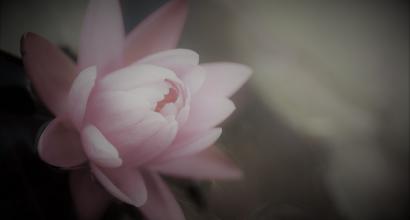When my wife was fast asleep, I slowly transferred my ring onto her finger. Then, telling myself ‘Let me see how clever and refined she turns out to be,’ I left for Ujjayinī the same night, without even informing her. When she woke up the next morning, she realised that I was not there. Then she saw my ring on her finger and thought, ‘He has left me just like he had sworn he would. Now I must fulfil my oath. I see the name ‘Mūladeva’ engraved on this ring. Surely then, my husband is none other than that infamous tramp who goes by the very name. People say that he lives in Ujjayinī. I shall go there and use all my shrewdness to achieve my goal!’ Resolving her mind thus, she went to her father and said, ‘Father! My husband has abandoned me! Without him, what happiness can I hope for? So, I will strive to wear away this mortal coil by undertaking pilgrimage.’
After convincing him with great difficulty, she packed her belongings and embarked upon her journey. She reached Ujjayinī and adopted the guise of a courtesan of high esteem, and took on the name Sumaṅgalā. She had her servants spread the word all around, that an exquisitely beautiful courtesan by name Sumaṅgalā had come to their city from Kāmarūpa. Ujjayinī’s most admired courtesan Devadattā, generously gave her own royal house for Sumaṅgalā’s use. Śaśī’s eyes soon fell upon this new ‘courtesan’ in town. He approached Sumaṅgalā’s attendant and asked, ‘How much should one pay for the privilege of your mistress’s enchanting company?’ The man replied in a sneering tone, ‘We have no dearth for money. We need connoisseurs of refined taste, who follow our rules. You see, we don’t want animals in the guise of men!’ Śaśī nodded in agreement and showed up at Sumaṅgalā’s house that very evening. The guard at the first entrance said ‘Kind sir, you must first take a bath now. Yes, even though you may already have had one earlier today. You may enter only if you agree!’ Śaśī accepted their terms. The maids led him in, gave him a thorough oil-massage, and then gave him a steaming hot bath. By then, the first part of the night was over. As he was about to enter the second door, another guard said ‘Stop! You must adorn yourself with precious ornaments before going in!’ Śaśī assented and followed the servants who took time to nicely bedeck him with all kinds of expensive jewels. By the time they were done, the second part of the night was over. Then as he came to the third door, the guards said ‘Sir, you must first finish your dinner. After that, you may proceed further!’. Śaśī agreed to this too, and followed the maid servants who led him to the dining room. He was offered various kinds of delicacies to savour. By the time he finished, even the third and final part of the night was over with. When he finally walked to the fourth chamber, which happened to be the bedroom, the door-keeper stationed there rebuked him scornfully saying, ‘Be off, you lecherous village scoundrel! Get out! Or else you’ll receive more tongue-lashing! Who in their right mind would come this early in the morning seeking the company of a courtesan?’ Upbraided thus, Śaśī slowly walked back the same path he had used to come this far. Sumaṅgalā would go on to deceive many people in the same way. Once this news reached my ears, my curiosity was piqued. I decided to have a go myself. Donning my best ornaments, I went to her house. I bribed each door-keeper with a lot of money and quickly reached the bedroom, which I was allowed to enter since I had shown up at the right time. There I saw my wife, who was in the guise of a beautiful courtesan. I could not recognize her. She however recognized me, and treated me with r just like a suave courtesan would. After spending a most delightful night with that singularly beautiful woman, I became so enamoured with her that I could not leave her house. She too could not bear to be away from me even for a moment. As time passed, she became pregnant.
Then one day, she fabricated a letter and showed it to me saying ‘Here, this is a missive from the king of Kāmarūpa. Read it’.
The letter said, ‘From Kāmarūpa–The orders from his majesty Śrīman-nārasimha are as follows; you have stayed there for too long; why? Cast off the love for foreign country and come back immediately!’ Once I finished reading it, she was in a sorrowful state and said, “I have no choice but to go; I’m indeed a dependent; please don’t be angry!” She went to Pāṭalīputra. Even though I was smitten, since she was a dependent, I refrained from following her. She stayed there and at the right time she begot a son. He grew to be an intelligent boy. When he was twelve years old, in juvenile jest, he kicked an attendant’s son. He cried and said, ‘how dare you kick me! You don’t even know who your father is, you were born when your mother was in a foreign country.’ Listening to this the boy was worried, approached his mother, and asked her, “O mother! Who is my father? Where is he? Pray tell me!” She replied, “Your father is Mūladeva; he has left me and has gone to Ujjayinī!”, she narrated everything. He said, ‘Mother! I’ll tie him up and bring here; let your vow be realized!’ He set out to Ujjayinī. The boy was a rogue indeed! He saw me in the gamblers’ den, recognised me, entered into the game, and defeated everyone. He distributed everything he won to the poor and needy. When I was asleep, he carefully placed me on a heap of cotton and stole my bed. When I woke up I was embarrassed, and also saw the funny side. When I went to the market, I saw that the boy was selling the cot. I approached him and said, ‘I’ll buy this bed!’ He replied, ‘Best among rogues! This isn’t for money; I’ll give it to you only if you narrate a story which is intriguing and unheard of!’ I replied, “I’ll narrate something which is unheard of; if you genuinely feel it is good you have to agree; if you disagree just for the sake of disagreeing then you are a cheat; the bed is mine’ With this contract I started my narration– ‘Long ago there was famine in one of the kingdom; the king grew food on the back of the beloved of the pig using the waters from the vehicles of nāgas and thus achieved abundance!’ the boy laughed and said, “The vehicles of nāgas are clouds; the beloved of the pig is earth, since Bhūdevī is the wife of Varāha! So what’s so special about growing crops on the earth using water from the clouds?” I was surprised. He said, “Now I’ll narrate a story which is unheard of; if you can decipher it, I’ll give you the bed; else you should become my servant.” I agreed, then he said, “O king of rogues! Long ago a boy was born, and as soon as he was born, he shook the earth with his feet; instantaneously he grew old and left this world!” Not able to make sense I said, “This is just some ramblings; there is no meaning to this.” he said, “Didn’t Viṣṇu who was born as Vāmana shook this very earth with his feet? Didn’t he grow instantaneously and touch the heavens? You have lost and now you are my servant! Mūladeva, all the people assembled in this market street are my witnesses. You have no choice now but to follow me wherever I go!”, said the boy. Then he grabbed me by my arm. Everyone there spoke in his favour. He had his people bind me, and then took me to his mother. Upon seeing me, his mother - my wife, cried “Husband! Today, my vow too has been fulfilled! The boy who had you bound and brought to me, is your son!”, and unravelled the whole matter in front of everyone. Everybody was elated and we celebrated the occasion with great fervour. I stayed there for a long time and then returned to Ujjayinī.
Your highness! Not every woman is unchaste. It is my conviction that pious women with unwavering devotion to their beloved husbands always exist.
Mūladeva thus concluded his amazing story. Having listened to this, king Vikramāditya and his ministers were very happy. The king continued to experience and perform wonders. He conquered the earth and lived happily for a long time.
* * *
Naravāhanadatta said, “O sages of mount Asita! Thus, sage Kāṇva narrated the story of Viṣamaśīla (Vikramāditya), replete with episodes of union and separation. He told me: “All beings experience union and separation in ways they can’t even imagine. Naravāhanadatta! You too will soon unite with your beloved. So, gather courage! Accompanied by your wife and ministers, you will hold sway as the emperor of vidyādharas for a long time.” When the duration of separation ordained by fate came to an end, I reunited with my beloved wife. I acquired mastery over various streams of knowledge, and also reigned supreme over a heavenly kingdom. I have already narrated to you how it happened through Śiva’s blessings.
Thus, Naravāhanadatta concluded the narration of his story to his father-in-law and the sages in the hermitage of Kaśyapa. He took their leave after the monsoon. Accompanied by his ministers and queens, he boarded his flying chariot, flew past the clouds in the skies and landed back at his home in Ṛṣabhādri within no time. Then he spent a whole eon enjoying the vidyādhara-kingdom, along with Madana-mañcukā, Ratnaprabhā and others.
~
This monumental story named Bṛhatkathā was narrated by lord Parameśvara to Goddess Pārvatī in Kailāsa, a long time ago. It gained acclaim, and was propagated far and wide by the curse-afflicted Puṣpadanta and others, who took birth as Kātyāyana and others. Goddess Girijā’s beloved, Śiva himself, blessed Bṛhatkathā thus: “Whosoever reads this epic with reverence, will be rid of their sins. They will turn into vidyādharas and attain my realm.”
End of Viṣamaśīla-lambaka
End of Kathāmṛta
Śrīrastu
Concluded
The current article is a translation of Prof. A R Krishnasastri’s Kannada classic Kathāmṛta along with additional segments added from the original Kathā-sarit-sāgara (of Soma-deva). Bṛhat-kathā-mañjarī (of Kṣemendra) and Bṛhat-kathā-śloka-saṃgraha (of Budha-svāmin) have also been referred to. The translation has been rendered by Raghavendra G S, Arjun Bharadwaj, Srishan Thirumalai, and Hari Ravikumar.
The original Kannada version of Kathāmṛta is available for free online reading. So are the other works of Prof. Krishnasastri






































